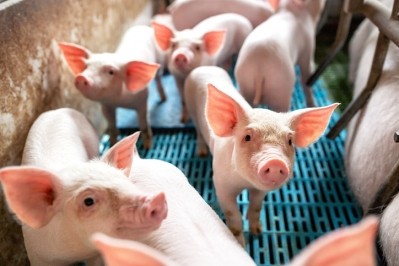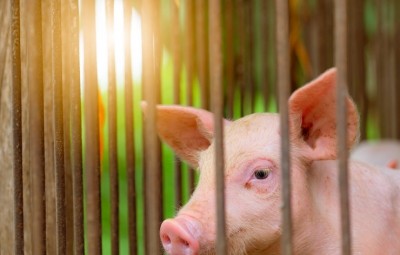Chinese researchers develop vaccine to protect pigs against ASF

The Harbin Veterinary Research Institute, the leading research body on animal diseases in China, said it has developed a vaccine against ASF that has been shown to be safe and effective in lab testing, as originally reported by Bloomberg.
The institute, which is overseen by the Chinese Academy of Agricultural Sciences, said the live vaccine was created from a series of gene-deleted viruses using the country’s first ASF fever strain.
"The virulence, immunogenicity, safety, and protective efficacy evaluation in specific-pathogen-free pigs, commercial pigs, and pregnant sows indicated that one virus, namely HLJ/18-7GD, which has seven genes deleted, is fully attenuated in pigs, cannot convert to the virulent strain, and provides complete protection of pigs against lethal ASFV challenge," the researchers said.
"Our study shows that HLJ/-18-7GD is a safe and effective vaccine against ASFV, and as such is expected to play an important role in controlling the spread of ASFV,” they added.
The vaccine is currently the most promising one for commercial production and will provide effective prevention and control of ASF in China and other related countries, said the Chinese research body.
The Harbin Institute did not disclose, though, as to when the vaccine would be commercially produced and available.
Pace of ASF spread slows in China
African swine fever (ASF) spread to a number of countries in 2019. After hitting China and Vietnam – the two major pork countries in Asia – and Laos, Myanmar, and Cambodia, it made its way to the Philippines, South Korea, and Indonesia in 2H 2019. The impact in many countries, though still significant, is not as big as in China and Vietnam, due to lower hog population density and preparedness for the disease, according to the Rabobank pork quarterly, released at the end of January 2020.
While ASF continues to spread in China, the pace has slowed, said the analysts at the Dutch bank.
Policies in China are encouraging restocking and production expansion, activities that are currently conducted by large companies with better biosecurity and modern farming facilities, they added.
Rabobank, though, expects to see a hike in pork imports into China this year: “As restocking is mainly achieved by keeping gilts, we expect to see a further drop in local production in 2020 [in China], which will reduce overall pork production. This suggests imports will increase in 2020, above record levels.”








